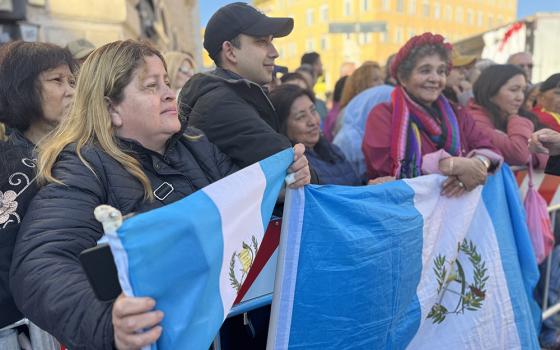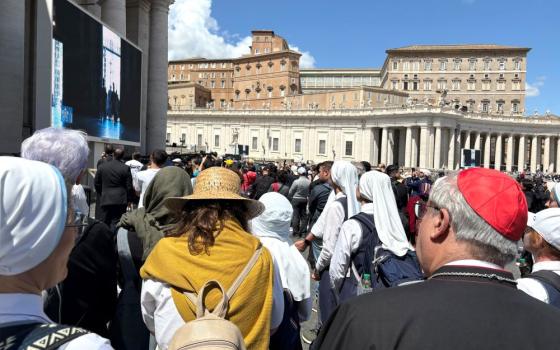I have not been shy about criticizing Archbishop Charles Chaput of Philadelphia in the past, so when he delivers a talk that is good, not great, but good, I have a special responsibility to call attention to it. Archbishop Chaput’s talk to the Napa Institute over the weekend, published at the National Catholic Register, affords me the opportunity to fulfill this obligation.
Archbishop Chaput stated:
I think it would be a mistake to describe him as a “liberal” — much less a “Marxist.” As I told the Italian newspaper La Stampa in an interview some weeks ago, words like “liberal” and “conservative” don’t describe Catholic belief. They divide what shouldn’t be divided. We should love the poor and love the unborn child. Service to the oppressed and service to the family; defense of the weak and defense of the unborn child; belief in the value of business and belief in restraints on predatory business practices — all these things spring from the same Catholic commitment to human dignity. There’s nothing “progressive” about killing an unborn human child or allowing it to happen. And there’s nothing “conservative” about ignoring the cries of the poor.
This passage is downright “seamless garmenty” is it not? And, it makes a point that should be made, again and again, that our Catholic commitments are enshrined by neither party nor ideological camp, and that those commitments cannot be divided. To the extent that we focus only on the unborn, and not on poverty, or vice-versa, we are selective at best, hypocritical at worst.
Archbishop Chaput also placed Francis’ teachings squarely in the tradition of previous pontificates. He said:
In matters of economic justice, Francis’ concerns are the same as Benedict’s and John Paul II’s and Pius XI’s and Leo XIII’s. He understands economic matters through the lens of Church teaching in the Compendium of the Social Doctrine of the Church. Like his predecessors, he defends human dignity in a world that consistently threatens it. But Francis stresses more directly than they did that human solidarity is a necessary dimension of human dignity. We need both. Human dignity requires not just the protection of individuals, as in our pro-life work, but an ongoing commitment to the common good.
Here, again, +Chaput is touching on something that his confreres in the USCCB need to ponder as they re-draft their quadrennial statement “Faithful Citizenship.” The category of intrinsic evil is wrongly placed in an otherwise fine section on forming conscience. The appropriate category would be “grave evil” not “intrinsic” but, more importantly, our consciences must be formed with a view towards the common good, not merely to maintaining our own moral purity. This is a shift in emphasis that is vital and I am delighted to see +Chaput advocating it.
Archbishop Chaput also squarely faces, and supports, Pope Francis’ teaching on the modern economy and the role of the state. He states that the Holy Father rejects “neo-liberal” economics, of the kind we associate with Milton Freidman, Alan Greenspan and the libertarian right. (In the rest of the world, what they call “neo-liberal” is usually “libertarian conservative” in the U.S.) And he affirms the fact that the state has a role in the achievement of a just social order. Most importantly, towards the end of the text, he explains Francis to his audience in a way that, hopefully, they can grasp:
It’s fitting that, for this “man from a far country,” this Latin-American pope, the task of economic justice, the work of incarnating human dignity and solidarity in the structures of our economic life, seems so ultimately and intimately linked to the Eucharist itself. God incarnated himself in a sinful world to redeem it with his love. His Son incarnates himself in our lives at every Liturgy; again, out of love. We now have the task of incarnating that same love in the structures of the world around us through the witness of our lives.
That may all seem like a commonplace here at NCR, but +Chaput was speaking to the 1 percent at the Napa Institute. Linking the Eucharist to the achievement of more just economic structures is not at the top of the 1 percent’s to-do list. And, in speaking of “structures” and not just privatized charity, +Chaput gave support for the point made at the last USCCB meeting by Bishop Bob McElory, that unless the conference expands its approach to conscience formation to include an examination of sinful structures, there is no way to make sense of Pope Francis’ teaching on poverty.
So, two cheers for +Chaput. Yet, the text of this talk is also deeply troubling. +Chaput states, “When we Americans think about economics, we think in terms of efficiency and production. When Francis thinks about economics, he thinks in terms of human suffering. We’re blessed to live in a rich, free, stable country. We can’t always see what Francis sees.” There are many Americans who think about economics and our thoughts turn to human suffering, thank you very much. And, the linkage of being blessed because we live in a rich country turns the beatitude “Blessed are the poor” on its head. In fact, while I wish every country will someday have an economy that will produce sufficient goods for its people to live without want, my thoughts on being “rich” and being “blessed” are closer to John Steinbeck who wrote, in a letter to Adlai Stevenson in November 1959, “if I wanted to destroy a nation, I would give it too much and I would have it on its knees, miserable, greedy, and sick.” Of course, it would have been downright impolite to offer such a sentiment at the Napa Institute. And, it might get one disinvited from the cigar reception.
I also cringed when +Chaput said this: “Before we go on, I should make a couple of obvious points about Francis. The first is that not everyone’s happy with him. G.K. Chesterton said that every age gets the saint it needs. Not the saint people want, but the saint they need; the saint who’s the medicine for their illness. The same may be true of popes.” I am glad that +Chaput suggests that Francis is the pope we need. But, who is he hanging around with? He should swing by NCR’s offices on his week back East, or come down to my house in Washington, and we will be happy to introduce him to people who find in Pope Francis the pope we want as well as need.
And, let’s look at the first paragraph I quoted above. +Chaput says, “I think it would be a mistake to describe him as a “liberal” — much less a “Marxist.” I do not recall +Chaput ever employing the conditional mood – “I think it would be” – in discussing John Paul II or Benedict. Why not just say, “It would be a mistake to describe him as a ‘liberal’ – much less a ‘Marxist.’” Anyone who could describe Francis as a “Marxist” does not know much about Francis and also doesn’t know much about Marx, and that would have been a point to make to America’s one-percenters, that not every instance of social solidarity is a step down the road to serfdom, a creeping Marxist betrayal of American individualism. There is something stand-offish about the way +Chaput discusses Francis, like he is describing an exotic cuisine, not a cuisine he really loves.
Still, it is no easy task to go in front of this crowd – I had almost written “mob” – of one-percenters, many of whom are very generous to the Church, and say something that challenges them without offending them. I do not believe every public speaking engagement has to be a “throwdown,” especially for a cleric. And, reading this text, one sees that +Chaput is at least trying to get his mind around this pope’s thinking. I feel about this speech the way I felt about Paul Ryan’s anti-poverty speech last week, it is a good first step, worthy of encouragement, but still, only a first step.



